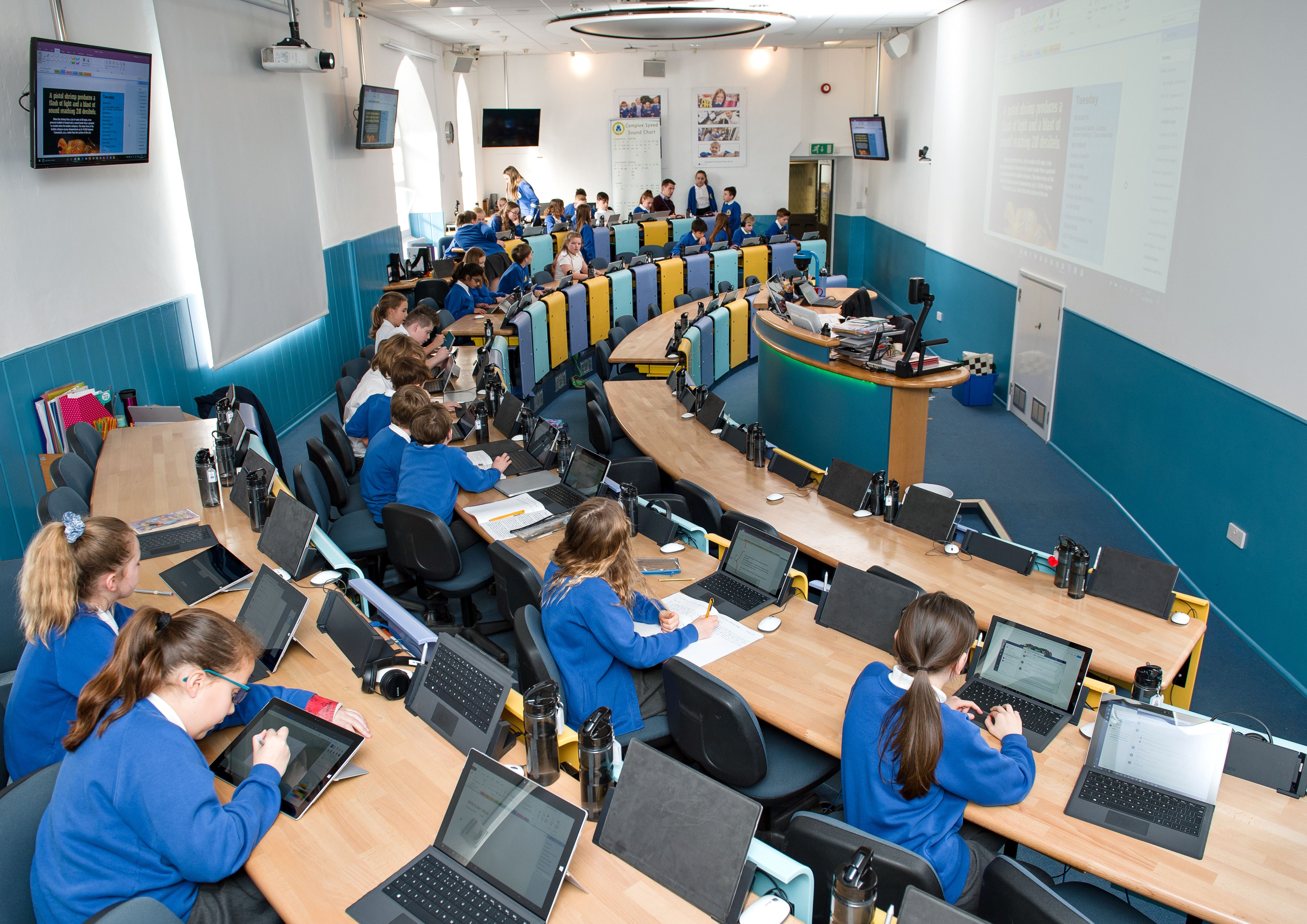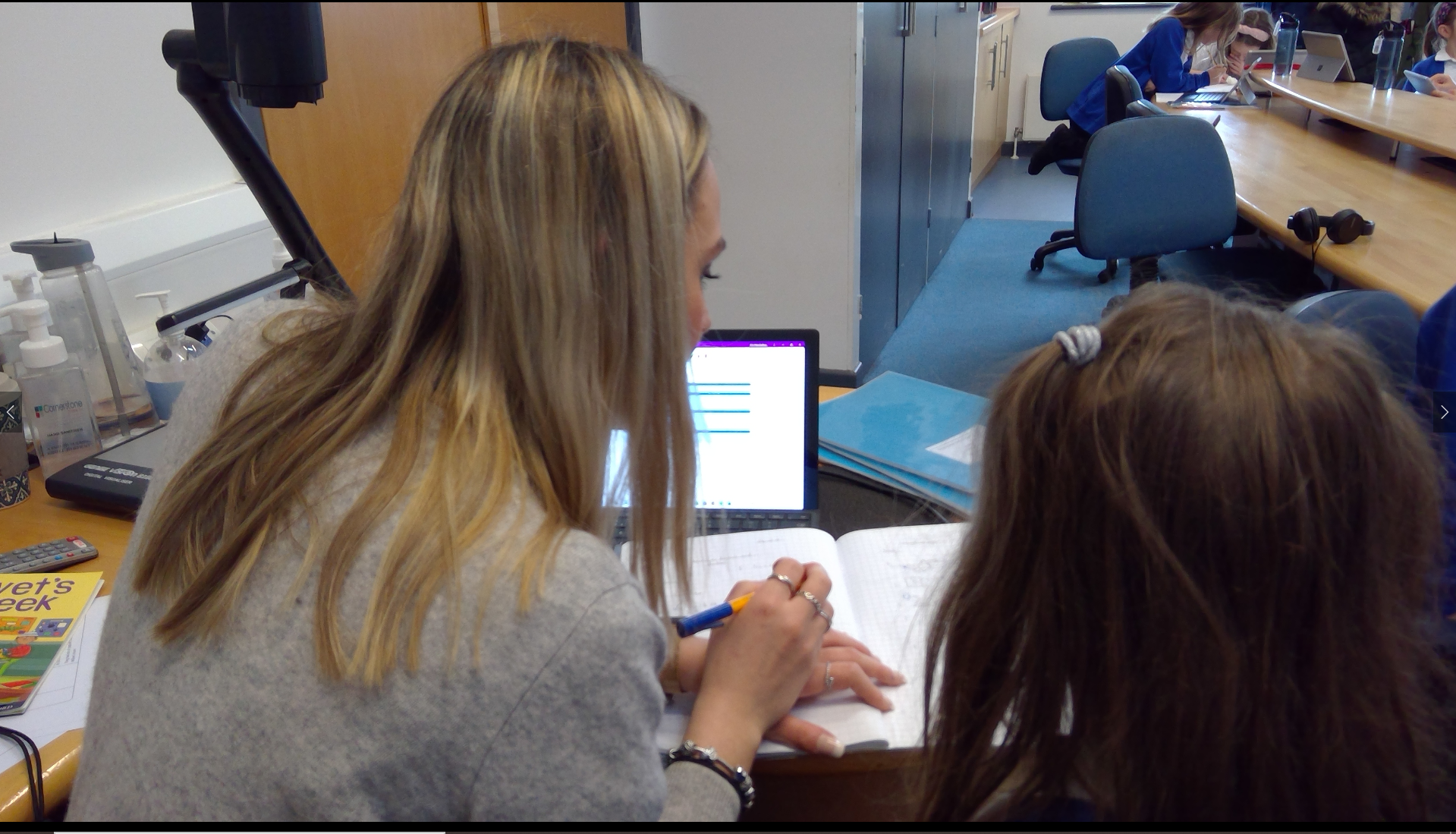Part A: Pupil premium strategy plan
Statement of intent
Our intention is to provide an inspirational teaching and learning environment with outstanding education and wider opportunities, to all children (disadvantaged or not). Our goal is that no child is left behind socially, or academically, because of disadvantage. We provide an exciting and motivating curriculum, matched to the needs of each pupil, whilst maintaining high expectations. We raise lifelong aspirations and focus on removing barriers to learning and achieving excellence.
We are a multi academy trust of 4 primary schools based in Devon. We pool budgets and resources and provide equal opportunities to all children within the Cornerstone trust. As such, we have created a trust-wide plan, to ensure our initiatives are deployed with equality and no prejudice.
This Pupil Premium Plan aims to address the main barriers our children face within each school whilst maintaining a Trust wide equity to quality education through shared practice. We deliver this through rigorous tracking, careful planning and targeted support and intervention that provides all children the access and opportunities to enjoy academic success.
The context of each school that shapes the main barriers the schools face is:
Broadclyst Community Primary School - set in the heart of a village on the outskirts of Exeter with a wide catchment area of predominantly high aspiration and working parents. Although this is a smaller PP group compared to the other schools in the trust, they are an important group that easily can be overlooked and so ensure equitable access to the wider curriculum and ensuring each child receives the personalised support is critical to ensuring no child is left behind. The school percentage of children in receipt of pupil premium is 8%.
Westclyst Community Primary School - a newly built free school in the centre of a new housing development on the edge of Exeter. The intake from the community reflects a good mix of working professionals who commute into Exeter and growing percentage of young families who are eligible for Pupil Premium funding and really benefit from the support the school offers in the heart of this new community. There is high inward mobility of children into the school and so it has seen a steady rise in children who are more vulnerable and a high number of children eligible for Pupil Premium. The school percentage of children in receipt of pupil premium is 19%.
Yeo Valley Primary School - in the centre of Barnstaple feeding from several surrounding estates. Many families are from vulnerable and disadvantaged backgrounds where there has been a sustained disillusionment with the education provided by the school which has resulted in a low aspiration and engagement with school life. Pupils often enter reception with low communication and language levels and several the parents require support with their own literacy. This can result in challenges in home / school communication and a lack of support for children when working at home. The school has several pupils that join mid-year from the local Women’s Refuge. Since the school has joined the Academy Trust, we have enabled the Children’s Centre to relocate on site and this provides a valuable support to vulnerable families. We employ the Nursery+ team that works regionally and provides significant support to the children in our Nursery. We also employ a speech and language therapist to provide additional support. The school percentage of children in receipt of pupil premium is 50%.
Monkerton Community Primary School - a newly built primary free school and has only been open for two years. It serves a new housing development on the outskirts of Exeter. It presently has a low-level pupil premium with the catchment currently attracting families who are working professionals and choosing this new school. Often, they have relocated to the area for work. However, as the local housing state develops and new year groups open, we expect to see a growing number of children who will be eligible for Pupil Premium. The school percentage of children in receipt of pupil premium is 8%.
Throughout all the schools within Cornerstone, children are offered a wider and extended curriculum to include trips and residentials which are essential to their learning and development.
The Trust is a Microsoft Showcase Trust and a DfE Edtech Demonstrator School. We have provided every child from Reception to Year 6 with a tablet device that enabled them to access education throughout the pandemic and now post pandemic, when working from home. This has enhanced the provision for disadvantaged pupils and ensured a level playing field as their education provision was continuous during each lockdown and subsequent absences. Furthermore, we have provided training for parents in how to use and access the schoolwork from home and have maintained the offer of this provision of training and online resourcing as part of our home learning. This has created a blended learning environment and means children can continue to access lessons when at home and parents can help and support where necessary. Alongside parent training we are ensuring that all families, whatever their level of deprivation, can benefit from this extended strategy to get better outcomes.
The impact of COVID for vulnerable and disadvantaged pupils has still been high due to the levels of deprivation and abilities of some families. This has been particularly noticeable at Yeo Valley Primary where the levels of deprivation are higher. However, we have minimised this impact through the 1:1 device programme, the quality remote live teaching and now through the recovery premium grant. This grant is enabling us to provide small group targeted support that is combatting any child that has missed education. The one-to-one support, small group interventions that are being targeted to the need of the children and children having extended access to recorded lessons and their OneNote. We are offering every child a Mentor, whom they meet with on a regular basis. This has become a way that we can target children accessing the National Tutoring Programme. In addition, the selected NTP children will also work in small groups to ensure gaps in knowledge are covered.
The 3 recommended areas of focus, taken from the Pupil Premium guidance, will be used as the basis for our strategy.
1. Teaching
Investing in high-quality teaching, for example:
- Training and professional development for teachers
- Recruitment and retention
- Support for teachers early in their careers
How we have addressed this point:
Weekly CPD:
The trust runs weekly CPD sessions after school on a Friday. We use this time to train/upskill staff on:
- Pedagogical strategies and methodologies in supporting children,
- Curriculum focus
- IT use and management
The weekly CPD runs in addition to the ECT programme and aims to continue to develop teachers.
Classroom Coaching:
Each member of the Leadership team is assigned as a mentor and coach to a Year group across the trust for a 4-week period. In which, they will act as a critical colleague, to review wider practices of a teacher, for example planning and resourcing, classroom management, displays, etc. They will also observe teaching in a variety of lessons, and will act as a coach to support teachers, giving instant feedback. Targets will be drawn out and set, for the next Leadership team member to focus on in a new 4-week cycle.
2. Targeted academic support
Additional support for some pupils focussed on their specific needs, for example:
- One-to-one tuition
- Small group tuition
- Speech and language therapy
How we have addressed this point:
Assessment and data:
We have access to a raft of standardised tests, these online assessment gives instant data, meaning the workload can be shifted from data to the curriculum. This maximises the impact on learning, supports school level decision making, individual children’s target setting, and informs classroom teaching and high-quality interventions. We set aspirational targets shared with children in their 1:1 mentor meeting so they meet the expected standard.
This has been essential due to Covid where a wider gap has been apparent, particularly amongst disadvantaged children less likely to attend school, furthering the gap.
Mentoring:
Each member of staff has a small group of children that every week they meet virtually with to discuss any issues picked up by the teacher, or the child. The mentor can discuss reading progress, share work completed and support in the areas needed. It is also an opportunity to talk through how they are coping during this time and provide some pastoral support to ensure mental health and wellbeing is monitored for all the children.
3. Wider approaches
Support for non-academic issues that impact success in school, such as attendance, behaviour, and social and emotional challenges. For example:
- School breakfast clubs
- Counselling to support emotional health and wellbeing
- Help with the cost of educational trips or visits
- Support to families with school uniform costs
How we have addressed this point:
The coherence between assessment has been adjusted during the pandemic to deliver the wider curriculum and the literacy, numeracy, and digital competencies through cross-curricular activities. This was key to avoid the restrictions on the expressive arts, health and wellbeing, languages, science, and technology.
We have supported all children and families by extending the school day. We open our classrooms at 8.30am and provide ‘before school activities’ for children to complete before registration. We have then offered a range of over 30 after school activities that run on Tuesdays, Wednesdays, and Thursdays. This includes sporting activities such as football, netball and rounders, and class-based activities such as cooking, photography, film making and coding. These activities extend the school day to 5pm.

Throughout the pandemic, we maintained a high level of attendance, by offering a robust online learning experience. Although we already had an embedded and defined Microsoft learning platform in place across all four schools, the need for reliable remote access became essential for all students, teachers, and staff due to the pandemic. It was crucial that the Trust could continue ‘business as usual’ through our digital platform. We utilised all the features of Microsoft 365, Teams, and the OneNote tools we already used for lesson planning, developing a system that removes any friction between virtual, face-to-face, and blended learning. The use of our online media notebook allows teachers to place text, images, video, interactive tasks and simulations within a single resource, which learners can access in a linear or self-directed way, as the teacher defines. This creates easily accessible, highly engaging, and motivating lesson content. Teachers teach and record all live lessons. In the situation where some children are at home, and some in school, the platform allows them the option of being involved live or of accessing the content of the lesson at a later time that suited their family life and access to technology. This way of working has now continued in everyday class practice, so the access to lessons and resources outside of the classroom, is always an option.
Challenges
This details the key challenges to achievement that we have identified among our disadvantaged pupils.
|
Challenge Number |
Detail of challenge |
|
1 |
Impact on progress due to COVID pandemic |
|
2 |
Speech and Language needs on entry to school that impact on literacy progress |
|
3 |
Newly qualified and recently qualified teachers who have trained during the pandemic |
|
4 |
Impact on progress of reading |
|
5 |
Impact of lack of opportunities in socialisation for children (especially 2–6-year-olds) |
|
6 |
Impact of less opportunities in the wider curriculum |
|
7 |
Low attendance due to low aspiration and covid anxiety |
|
8 |
Safeguarding issues due to parental needs and capacity |
|
9 |
Lack of engagement and focus on learning due to parenting needs |
Intended Outcomes
This explains the outcomes we are aiming for by the end of our current strategy plan, and how we will measure whether they have been achieved.
|
Intended outcome |
Success criteria |
|
Children to be able to self-regulate with positive engagement in learning |
Use of PASS assessment to identify and track positive engagement in school |
|
Early identification and implementation of target intervention programmes to support speech development, language and understanding and phonics / reading progress |
Use of Speech & Language Assessments, phonics screening assessments and reading test data to ensure good progress |
|
All teachers including ECTs to have high quality teaching and learning strategies |
High quality, consistent provision in all classrooms. All children make good progress in line with national average. |
|
Parental engagement with school support services and increased engagement by children in their learning. |
Attendance by parents in parenting courses / meetings with evidence of increased aspiration and engagement by parent and child with use of PASS assessments to monitor attitudes. |
|
Increased attendance by targeted children. |
Good attendance |
|
All children have access to trips, residential and extended curriculum opportunities. |
All children partake in trips, residentials and extra-curricular activities. |
